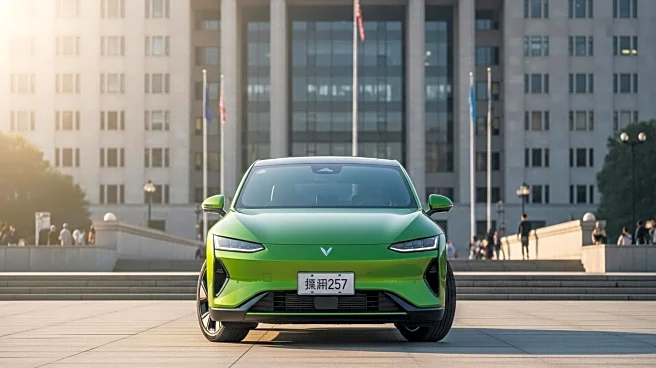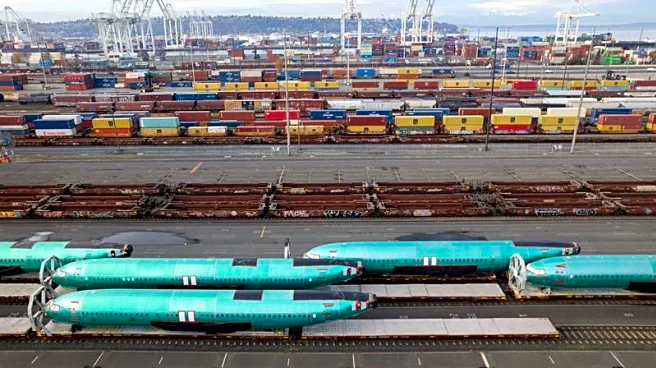What's Happening?
BYD has delivered its 14 millionth New Energy Vehicle (NEV) to Brazilian President Lula da Silva at the company's new factory in Bahia, Brazil. This factory, which replaces a former Ford plant, is expected to rejuvenate the local economy by providing direct jobs and indirect benefits to local businesses. The vehicle delivered was a special edition Song Pro DM-I, which will be used at the COP30 UN Climate Change Conference in Belém and later donated. The factory is set to increase production to 600,000 vehicles, making it the largest manufacturing plant in Latin America. This expansion aims to make electric vehicles more accessible and affordable, positioning Brazil as a manufacturing hub for Latin America and an exporter to Africa.
Why It's Important?
The delivery of the 14 millionth NEV and the expansion of BYD's factory in Brazil signify a major step in the global push for sustainable transportation. This development is crucial for Brazil's economy, as it promises job creation and economic growth. The focus on renewable energy and electrification aligns with global efforts to combat climate change, and Brazil's role as a host for COP30 highlights its commitment to environmental leadership. The collaboration between BYD and Brazilian engineers to adapt the powertrain for local conditions demonstrates a successful model of international cooperation in technology and sustainability.
What's Next?
BYD's expansion plans include ramping up production to 600,000 vehicles, which will significantly impact the availability and pricing of electric vehicles in Latin America. The collaboration with the Brazilian government to develop educational and research institutions will further enhance local talent and technological capabilities. The focus on renewable energy projects and infrastructure development will continue to reduce environmental impact and support Brazil's climate goals. As Brazil prepares to host COP30, the country is likely to strengthen its position as a leader in climate action and sustainable development.
Beyond the Headlines
The cultural exchange observed during the launch event, with populist and globalist messages, reflects a broader trend of international collaboration in addressing global challenges. The adaptation of vehicles to run on ethanol, a locally abundant resource, highlights the importance of tailoring sustainable solutions to regional contexts. This development could serve as a model for other countries seeking to balance economic growth with environmental sustainability.











